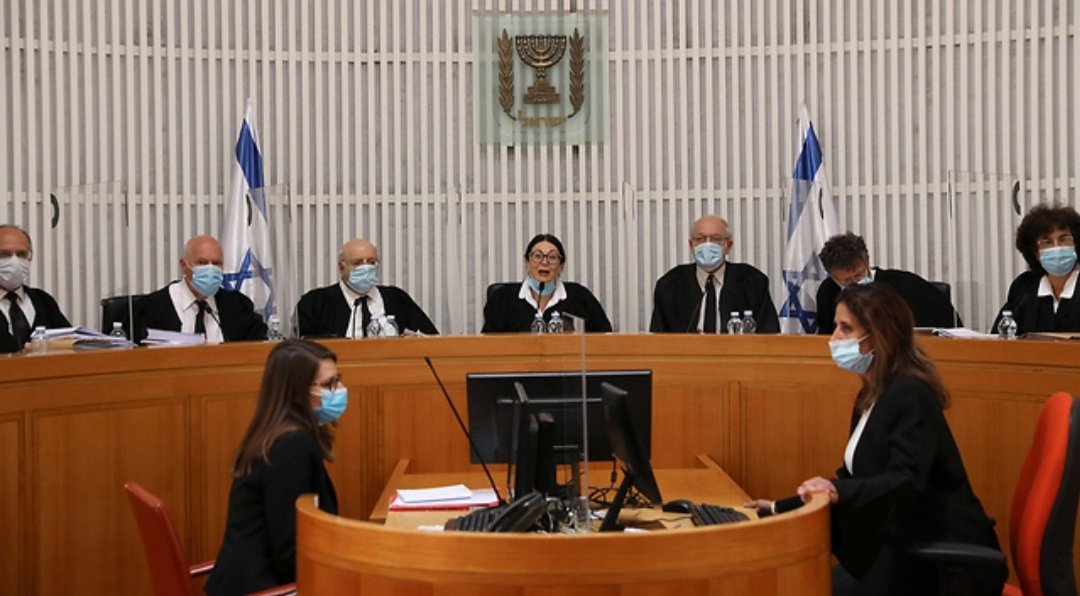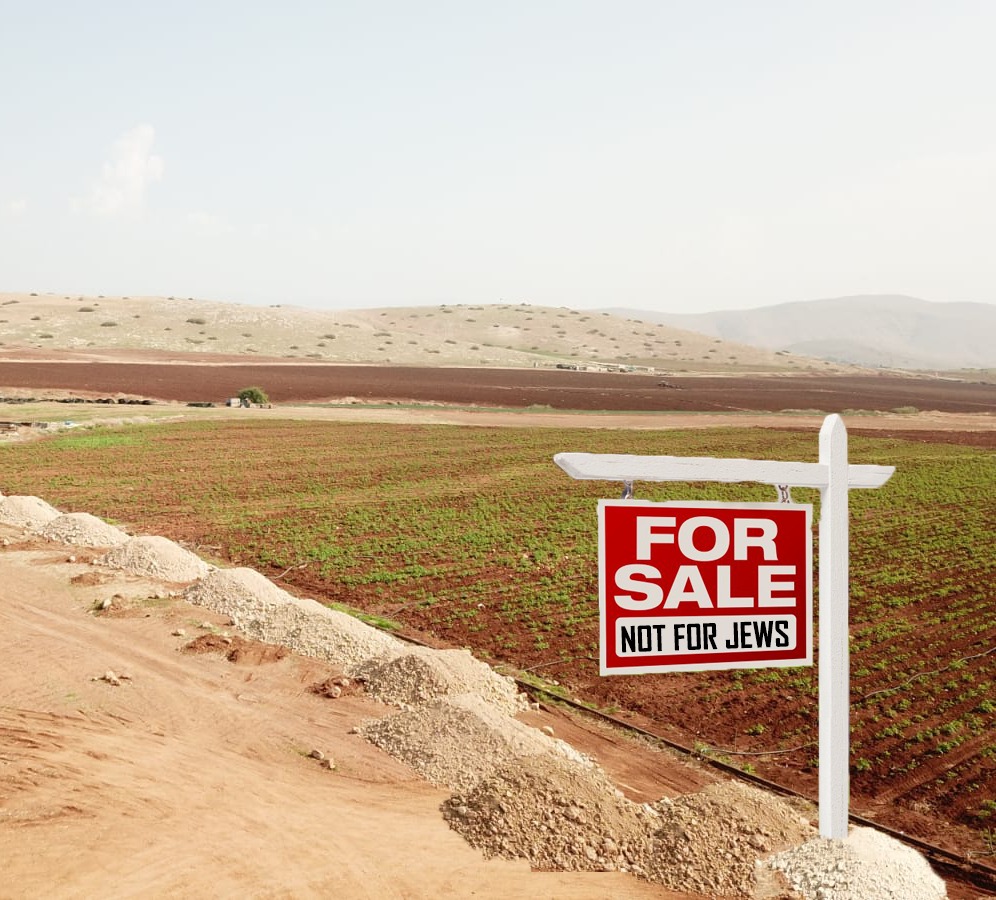Responding to a petition filed by the Regavim Movement, Israel’s High Court of Justice (HCJ) issued a preliminary injunction against Defense Minister Benny Gantz, who has refused to repeal the Jordanian law still in force in Judea and Samaria prohibiting the sale of land to Jews – despite the recommendations of previous ministers and Ministry of Defense professional and legal advisers.
Today (Tuesday) the High Court of Justice handed down a preliminary injunction requiring the government to submit, within 60 days, a defense of its continued enforcement of Jordanian Law #40 which prohibits the sale of land in Judea and Samaria to Jews. This law, passed in the 1950s during the Jordanian occupation, remains in force to this very day.
Among the many restrictions that apply exclusively to Jews and limit their ability to purchase land in Judea and Samaria, this is perhaps the most egregious – but it is certainly in not alone: Jews, and only Jews, are denied access to the Land Registry for this region, unlike any other area under Israeli jurisdiction, where land deeds and property titles can be obtained with the click of a mouse and downloaded from the government’s website. Likewise, Jews – and only Jews – are required to obtain approval of any property transactions (even when both the buyer and seller are Jews) in Judea and Samaria; Jews alone are subject to a staggering array of military orders that obstruct the use of land. – and the list goes on and on.
Since the liberation of Judea and Samaria in 1967 from Jordanian occupation (which was almost universally rejected and condemned by the international community), land purchases for settlement by Jews were carried out according to extremely convoluted work-around procedures designed to evade the problem rather than solve it: Corporations were registered as legal entities in Judea and Samaria, for the purpose of circumventing the prohibition against sale of property to Jewish individuals , thus avoiding “the Jewish problem.” Aside from the inherent racism of this arrangement, the work-around “solution” has posed a major obstacle to the development of Judea and Samaria, and a major violation of Jews’ fundamental rights.
In late 2018, the Ministry of Defense’s legal counsel and professional staff initiated an examination of Jordanian Law #40 and the regulations that require Jews to receive special permits for property transactions, with an eye toward their repeal.
The conclusions of this examination, reflected in a policy recommendation that took shape in the final months of Minister Avigdor Lieberman’s tenure, were finalized during the tenures of Netanyahu and Naftali Bennet who succeeded Lieberman at the helm of the Defense Ministry. They recommended the repeal of the restrictions that prohibit Jews from purchasing land, as well as a very significant easing of requirements for special land – transaction permits.
Regavim petitioned the High Court of Justice when the current Minister of Defense, Benny Gantz, announced that he does not intend to repeal Law #40 – despite the recommendations of the Ministry of Defense professionals and his predecessors, Netanyahu and Bennett.
Justices Hendel, Groskopf and Shochat today issued a preliminary order against Defense Minister Gantz, and required him to present his arguments against the repeal of the law within 60 days.
The Regavim Movement welcomed the news of the newly-issued order. Attorney Boaz Arzi said, “Our petition asked an obvious question: How is it possible in Judea and Samaria, of all the places in the world, a racist law still prohibits Jews from buying property? The High Court of Justice has demanded that the government explain why this law is still on the books, and why it is still enforced.”











